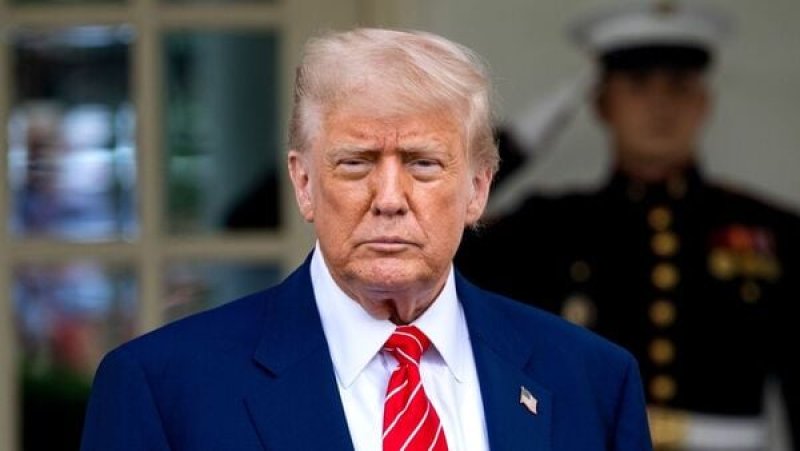
Trump's sweeping new tariffs take effect against dozens of countries

Just before the deadline for deals to be agreed to cut or avoid the import taxes Trump posted on his Truth Social platform that billions of dollars were now flowing into the US due to tariffs.
Earlier, the president hit India with a 50% tariff, which will take effect on 27 August unless it stops buying Russian oil.
Trump also threatened a 100% tariff on foreign-made computer chips as he pushes tech firms to invest in the US. It came as Apple announced a new $100bn (£75bn) US investment after coming under pressure from the White House to move more production to America.
Last week, the Trump administration announced a revised list of import taxes on dozens of trading partners and extended a deadline for countries to reach agreements with the US to 7 August.
Countries have been racing to strike deals with Washington to lower - or scrap - what Trump calls "reciprocal tariffs".
His trade policies are aimed at reshaping the global trading system, which he sees as treating the US unfairly.
Export-dependent economies in South East Asia were among the hardest-hit by the new tariffs.
Manufacturing-focused Laos and Myanmar faced some of the highest levies at 40%. Some experts said Trump appears to have targeted countries with close trade ties with China.
Stock markets in Asia seemed to take the news in their stride on Thursday.
Major share indexes in Japan, Hong Kong, South Korea and mainland China were a little higher, while markets in India and Australia were lower.
The latest set of tariffs will offer countries some stability after months of chaos, said economist Bert Hofman from the National University of Singapore.
"This is supposed to be it. Now you can start to analyse the impact of the tariffs."
Some major economies - including the UK, Japan and South Korea - have already reached agreements to get lower tariffs than Trump threatened in April.
The European Union has also struck a framework deal with Washington, in which Brussels has accepted a 15% tariff on goods from the trading bloc.
Switzerland has said it will hold an extraordinary meeting on Thursday after its officials were unable to reach a deal with the US.
At 39%, Switzerland's tariff rate is one of the highest imposed by the US and threatens to hit the country's economy hard.
Taiwan, a key Washington ally in Asia, was handed a 20% tariff. Its president Lai Ching-te said the rate is "temporary" and that talks with the US are still underway.
Last week, Trump boosted the tariff rate on Canada from 25% to 35%, saying the country had "failed to cooperate" in curbing the flow of fentanyl and other drugs across the US border. The Canadian government says it is cracking down on drug gangs.
But most Canadian exports to the US will dodge the import tax due to an existing trade treaty, the United States-Mexico-Canada Agreement (USMCA).
Higher tariffs on Mexico were paused for another 90 days as negotiations continue to strike a trade deal.


